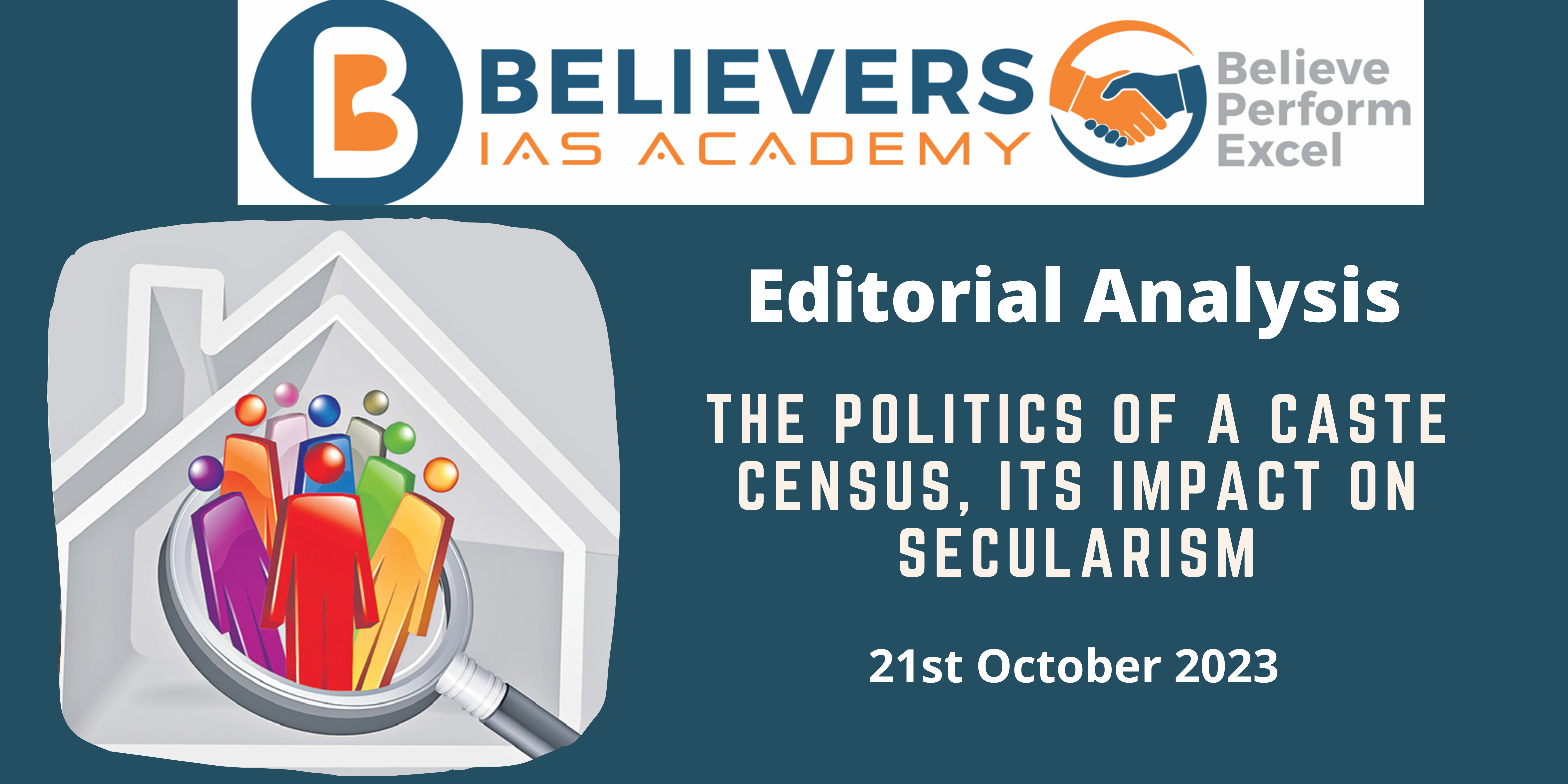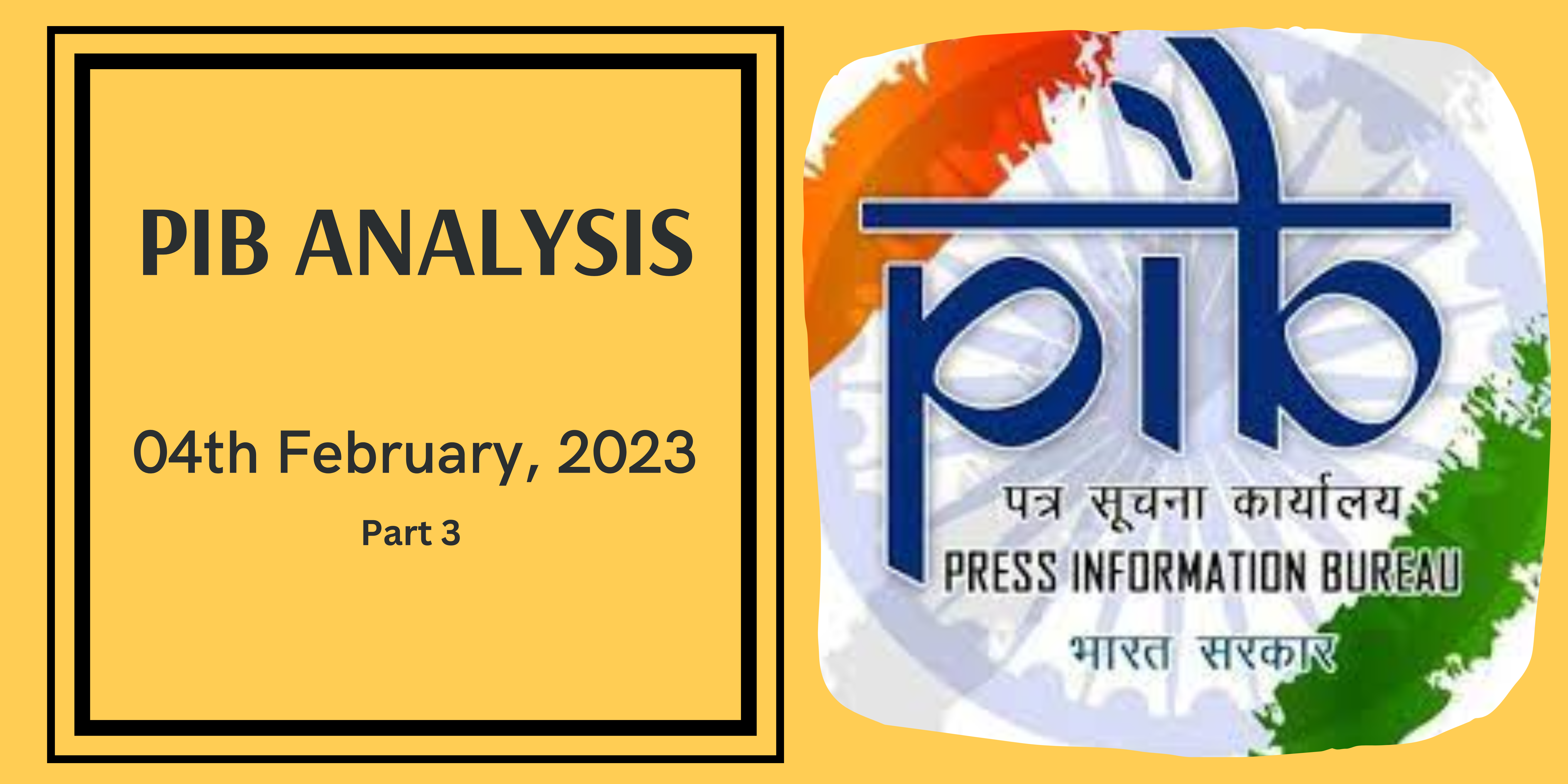The politics of a caste census, its impact on secularism
Context:
The demand for a caste census in India, consistently championed by various Opposition party leaders within the Indian National Developmental Inclusive Alliance (INDIA), has become a central issue.
Relevance:
GS-01, GS-02 (Secularism, Government policies and interventions)
Mains Question:
Analyze the significance of a caste census in India and its potential implications on both the socio-economic fabric and political landscape. Discuss the reasons behind the reluctance to conduct a caste census and its impact on the Indian polity. (250 words)
Dimensions of the Article:
- The Relationship Between Caste and Poverty
- The Right’s Reluctance for a Caste Census
- Historical Context and Secular Resistance
The Relationship Between Caste and Poverty
- Caste has a profound impact on the perpetuation of institutional poverty in India as it historically determines occupations and skills. In the modern Indian economy, most professions are shaped by networks, where caste plays a decisive role in driving these networks. This makes a caste census crucial for understanding the intricate web of poverty.
- Rahul Gandhi’s analogy of a caste census being ‘like the X-ray of India’ holds true. However, Prime Minister Narendra Modi’s dismissal of caste as a concern is a stark oversight. He turns a blind eye to the undeniable reality that caste has bred poverty in India, and this neglect is detrimental to society.
The Right’s Reluctance for a Caste Census:
- Hindutva ideology appears hesitant about conducting a caste census due to fears that it might lead to divisive politics, triggering endless claims and counter-claims related to positions and power. Such a census could disrupt the Hindu majoritarian unity, which Hindutva forces have been striving to build through extensive grassroots campaigns.
- Hindutva’s success in achieving Hindu majoritarian unity seemed almost unattainable in the mid-1970s but is now within grasp. On the other hand, secular political groups are also aware of the divisive potential of a caste census, and they view it as a powerful tool to counter the growing electoral influence of Hindu majoritarian forces.
- Historically, there has been an argument that asserting caste identities could contribute to the secularization of Indian politics. This was evident when the Samajwadi Party (SP) and Bahujan Samaj Party (BSP) formed a coalition and effectively contained the Bharatiya Janata Party in Uttar Pradesh. However, since 2014, there has been a resurgence of Hindutva politics in India’s heartland, showing that secularization is not guaranteed.
- While there’s a possibility of secularization, there’s also a parallel possibility of caste-based social engineering and Hindu majoritarianism growing concurrently, creating a unique model for competitive Hindutva politics. Thus, the revival of secular politics through a caste census is limited, making it a gamble in the context of re-establishing secularism in India. It may slow down the pace of Hindutva politics but is not the ultimate solution for countering the rise of Hindu majoritarianism.
Historical Context and Secular Resistance:
- The last caste census was conducted in 1931 when right-wing groups were marginal in India’s freedom movement. Post-Independence, there was an opportunity to resume a caste census in 1951, which didn’t materialize.
- This could have been influenced by right-wing groups that had infiltrated secular political formations, including the Congress party, as suggested by Bruce Graham, an expert on the Bharatiya Jana Sangh (BJS). It’s plausible that the reasons behind the exclusion of the word “secular” in the Indian Constitution and the non-resumption of a caste census in 1951 had some overlap. Present-day resistance echoes the same reasoning but with amplified intensity and organization.
Conclusion:
A caste census is not just a statistic but a tool for recognizing and addressing deeply ingrained inequalities. It is a necessary element in the pursuit of a more equitable and just Indian society, reflecting the complexities of caste, politics, and poverty in the country.




